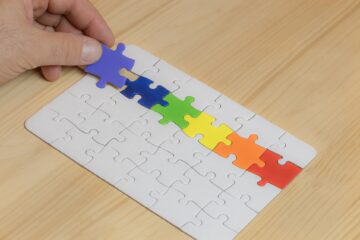![]()
Introduction:
In the last fifty years or so, due to groundbreaking advancements in the medical and healthcare industries and as a result of modern economies being focused on innovations in the R&D sector, the longevity or life expectancy in India has risen dramatically. According to a 2016 report by the Ministry for Statistics and Programme Implementation, about 103.9 million people in India are aged above 60 (8.5% of the total population)[1]. India is ageing fast and the World Health Organization (WHO) has estimated that by 2050, 20% of our population will consist of senior citizens[2].
India has always been viewed as an elderly-friendly country centred around familial values, with the predominance of tight-knit joint families, respect to elders being encouraged and valued, and the prevalence of wholesome co-existence between the young and the old. But this reality has changed for the worse over the years, with the International Network for Prevention of Elder Abuse (INPEA) stating that India is the leading Asian country in terms of elder exploitation and abuse[3]. This can mainly be attributed to changing lifestyles and “modernization”, career-centric lives, lack of time and funds, growing apathy and erosion of bonds, family disputes on land and property, etc.
In the wake of the ongoing pandemic, several reports of abuse against the elderly are resurfacing. As per some national-level studies conducted by HelpAge India and Agewell Foundation, it has been found that about 71% of the elderly have personally been victims of abuse[4] and about 83% are of the belief that elder abuse is widely prevalent in our society[5]. The numbers are staggering, but this issue has not yet gained much realization or importance. This is a serious violation of human rights which causes grave repercussions to the well-being of the elderly and has now become a global socio-legal issue that deserves immediate attention and action.
Recently 15th June 2020 was celebrated as “World Elder Abuse Awareness Day”, this day has been designated as such to raise awareness on the increasing abuse against the elderly and to address the urgent need to take preventive measures for the same. Its UN-given theme for this year was “Safeguard older persons during COVID-19 & beyond”[6]. This promotes the need for provision of welfare schemes for improving the lives of the elderly during these difficult times and its continuing enforcement even after we overcome the tides of the pandemic.
Problems Faced by the Elderly and the Reasons Behind
The WHO has defined elder abuse as – “A single or repeated act, or lack of appropriate action, occurring within any relationship where there is an exception of trust, which causes harm or distress to an older/senior person”[7]. It is noteworthy to mention the use of the word “trust” in this definition as according to various studies undertaken by credible organizations, more often than not, the perpetrators of elder abuse are found to have been their own family members or caregivers. According to the WHO and INPEA, the forms of elder abuse can be classified into three broad categories:
(1) Neglect – this includes social isolation, abandonment, social exclusion, non-provision of basic day-to-day necessities, etc.[8]
(2) Violation of human, legal and medical rights – This can include physical abuse (assault, battery, confinement or restrainment), psychological or emotional abuse (humiliation, silent treatment, apathy, insults, verbal abuse, dominating behaviour, mistreatment, inducement of fear, intimidation and threats), provision of insufficient care, inappropriate prescription of medicines (overdosing or underdosing), etc and in some cases even sexual abuse, burglary, theft, robbery, murder and crimes against property.[9]
(3) Deprivation of choices, status, decision, finances, respect and dignity – This includes the exploitation or misuse of an elderly person’s assets or goods, treating them with disrespect, contemptuous behaviour, not allowing them the freedom to choose what they want to do, etc.[10]
Some of the other problems faced by the elderly people include deteriorating health leading to a lack of physical capability and sometimes even complete immobility, loss of appetite, vulnerability to various serious ailments and diseases, joint and bone defects due to old age and declining intellectual capacity such as loss of memory, Alzheimer’s disease, Parkinson’s disease, etc. This may lead to the family and caregivers viewing them as an emotional and financial “burden”. These feelings eventually lead to conflicts in the family. Most of the times, the old people in the house are neglected and not given enough love and emotional support. They feel lonely even in a house full of people as most of the members of the family are either rude or indifferent. They are given no choice and their opinion is not given any importance.
They are regarded as unproductive, weak and dependent and therefore a burden to society and are restricted from getting involved in social gatherings and are often asked to keep away from indulging in any sort of recreational activities. Most of them have also lost their spouses and friends, thus have no one to talk to and are often left to spend their time in isolation.
Sometimes they are not even provided with adequate accommodation and resources. They also undergo a lot of economic problems as they cannot earn and some do not even receive pensions, so they have to resort to asking for money from their children which can be a rather humiliating experience. They are also criticized and rebuked for not being of any help financially or even in household chores. In India, clashes between the elderly mother and daughter-in-law are present in almost every household. All this lack of empathy leads to serious mental health issues in them such as depression and loneliness, and even substance abuse and alcoholism.
Studies, Reports and Findings on the Issue
In almost all of the studies and reports, the common finding is that more often than not, the perpetrator is the son and the daughter-in-law.
According to a study conducted by two public health professionals under BMC Public Health in 2014 across seven demographically oldest states in India, 11% of 60+-year-olds have faced at least one type of elderly abuse – 5.3% have experienced physical abuse, 10.2% experience verbal abuse, 5.4% experience economic abuse, 6% have to deal with disrespectfulness, 5.2% experience neglect. 41% of elderly males and 43% of female elders reported abuse. It was found that well-educated households with a greater number of family members tend to have the least amount of elder abuse.[11]
According to a 2011 study by HelpAge India conducted across 12 major cities, it was found that of the abused elders, 60% experienced verbal abuse, 48% experienced physical abuse, 37% undergo economic abuse, 35% experienced emotional abuse and 20% felt neglected. 53% of female elders and 48% of male elders reported abuse.[12]
Laws Governing Elder Abuse in India
The only existing legislation that protects the rights of the senior citizens against elder abuse in India is the Maintenance and Welfare of Parents and Senior Citizens Act, 2007. The Act has been formulated to provide an effective legal framework for maintenance and welfare of the elderly as it imposes a legal obligation upon their offspring to financially support them by giving a monthly allowance. It also provides cost-effective, speedy and hassle-free procedures to the elderly to avail for the benefits granted under this Act. It protects the life and property of the elderly and also governs the establishment of nursing and retirement homes. It also helps the poor and needy older persons to opt for the provision of maintenance.[13]
The MWPSC Act was amended in 2013 due to which sons could now be legally held responsible for not supporting the parents and later it was amended in 2018 to even include the daughters-in-law and sons-in-law.[14] Section 24 of this Act provides a punishment of imprisonment of 3 months and a fine of Rs. 5000/- for abandoning elderly parents.[15]
In 2017, the Delhi High Court ordered that adults subjecting their parents to abuse could be evicted from the legally-possessed homes of such parents.[16]
Very recently, a petition was filed by Senior Advocate Dr Ashwini Kumar seeking the provision of care and assistance to senior citizens by the Centre in the wake of COVID-19. With regards to this, the Supreme Court directed the Union Ministry for Social Justice and Empowerment to take measures to ensure that senior citizens living alone during the pandemic are receiving proper care. The two-judge bench ordered the Ministry to provide timely pensions and noted that the Centre is obligated to care for the elders who live alone during these difficult times and must make sure they receive essential goods and services on time. The Centre was also asked to monitor whether old-age homes are adhering to the safety precautions for COVID-19 and whether caregivers are well equipped with sanitisers, masks, PPE kits, etc.[17]
Suggestions
According to me, 3 key ways to tackle the issue are:
- Sensitization of people regarding the problems faced by the elderly and how to help them cope with the same.
- Effective implementation and enactment of stringent laws.
- Provision of proper training to caregivers regarding behavioural aspects when interacting with and caring for the elderly.
Laws are of no use if the issue is not recognized, so raising awareness takes topmost priority. Once the issue is given due importance, enforcement of the legislations will gain momentum and gradually there will be improvement in the lives of the elderly in India. The matter will most probably be taken up seriously as the old people in India have always been highly respected and revered. They do not ask for much, just a little bit of TLC (Tender, Love & Care), and it will do us no harm to spare some time out of our hectic lives and provide our old parents and grandparents with the same.
References:
[1] Romita Datta, Eldercare: Demographic downside, INDIA TODAY (August 11, 2018, 19:10 IST), https://www.indiatoday.in/magazine/nation/story/20180507-branded-corporate-elderly-care-old-age-homes
[2] Dr Debanjan Banerjee, The silent evil of elder abuse in India, THE NEW INDIAN EXPRESS (June 22, 2020, 7:18 AM), https://www.newindianexpress.com/opinions/2020/jun/22/the-silent-evil-of-elder-abuse-in-india
[3] Supra note 2.
[4] Over 71 pc senior citizens in India victims of abuse by family members: Survey, THE ECONOMIC TIMES (June 13, 2019, 10:26 PM IST), https://economictimes.indiatimes.com/news/politics-and-nation/over-71-pc-senior-citizens-in-india-victims-of-abuse-by-family-members-survey/articleshow/
[5] Ranjay Vardhan, Elder abuse and elder victimization: A sociological analysis, CAMBRIDGE UNIVERSITY PRESS (Feb 2, 2018), https://www.cambridge.org/core/journals/international-annals-of-criminology/article/elder-abuse-and-elder-victimization-a-sociological-analysis
[6] Riddhi Adsul, What is World Elder Abuse Awareness Day 2020 theme? Know Meaning & Significance, REPUBLIC WORLD.COM (June 14, 2020, 23:30 IST), https://www.republicworld.com/lifestyle/festivals/world-elder-abuse-awareness-day-meaning-theme-significance-celebration
[7] Elder Abuse, WORLD HEALTH ORGANIZATION (June 15, 2020), https://www.who.int/en/news-room/fact-sheets/detail/elder-abuse
[8] Supra note 7.
[9] Supra note 7.
[10] Supra note 7.
[11] Vegard Skirbekk, KS James, Abuse against elderly in India – the role of education, BMC PUBLIC HEALTH 14, 336 (Apr 9, 2014), https://bmcpublichealth.biomedcentral.com/articles/10.1186/1471-2458-14-336#citeas
[12] Supra note 5.
[13] Maintenance and Welfare of Parents and Senior Citizens Act, 2007, WIKIPEDIA (July 29, 2020, 9:29 UTC), https://en.wikipedia.org/wiki/Maintenance_and_Welfare_of_Parents_and_Senior_Citizens_Act,_2007
[14] Team HappyAging, Laws That Protect Elderly Against Abuse in India, HAPPYAGING (June 7, 2019), https://happyaging.in/laws-against-elder-abuse/
[15] Supra note 5.
[16] Supra note 14.
[17] Shruti Mahajan, Supreme Court directs Centre to ensure care for senior citizens living alone during COVID-19 pandemic, BAR & BENCH (Aug 4, 2020, 11:52 AM IST), https://www.barandbench.com/news/litigation/supreme-court-directs-centre-care-senior-citizens-living-alone-covid-19



1 Comment
Dipti · 27/08/2020 at 1:57 AM
Very interesting topic as this is something in subconscious mind but not openly discussed issue. Awareness is key ,rules can be little stricter as well 5k punishment is hardly anything.
Very well written article ,Congratulations